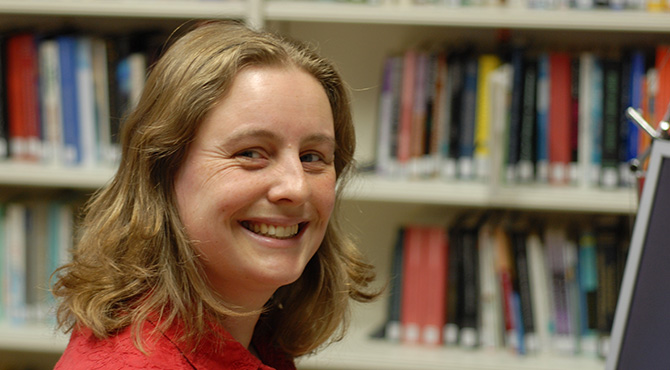
Dr Jenny Pickerill

Jenny Pickerill is a lecturer in Human Geography at Leicester University, UK. She has previously been a postdoctoral fellow in Internet Studies at Curtin University of Technology, Perth, Australia. She gained her PhD in Geography (Newcastle University, 2001) exploring environmental activists use of the internet and an MSc in Geographical Information Systems (Edinburgh University, 1996). She has published a book – Cyberprotest – and over a dozen articles on internet activism, specifically its use by environmental and social justice activists in Britain and Australia.
She is currently exploring anti-war activism in Britain on an ESRC-funded project (with Frank Webster and Kevin Gillan, City University), and anti-capitalist activism and everyday life on another ESRC project (with Paul Chatterton and Stuart Hodkinson, Leeds University).
Jenny has a particular interest in internet activism. She is currently working on a research project on Internet Activism: Anti-war movements in the Information Age. The project aims to characterise and account for the distinguishing features of anti-war movements in Britain while showing particular concern for their use and adoption of new media/ICTs. It examines processes of informal political participation in often transitory and heterogeneous mobilisation round contentious issues. Of which the anti-war movements are a major – if understudied – instance. Using recent coalitions mobilised against wars, four foci are explored: representation, organisation, mobilisation and coalition building. Representation concerns how social movements present themselves internally and externally; organisation involves questions of management of affairs; mobilisation is about the conditions of activity amongst the social movements; and coalition building is about how alliances are created and maintained.
In specific relation to coalition building a sub-theme of this project has included a particular focus on Muslim anti-war activism. The prominence and voice of Muslims within peace and anti-war campaigns has increased dramatically in recent years. This involvement of a religious and ethnic minority challenges the political left to accommodate and understand Muslim concerns. The contemporary anti-war movement is thus a broad and contested alliance of a myriad of groups. The role of internet technologies is of particular interest because of its potential as a space through which to encourage dialogue across these differences.